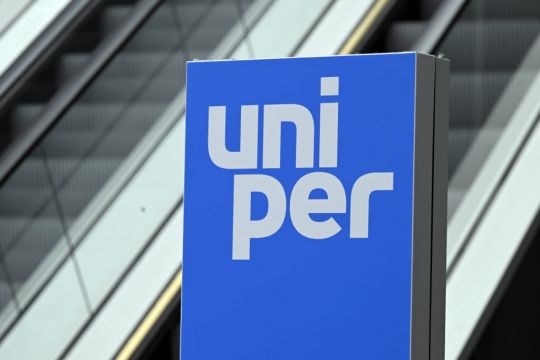The German government has agreed to nationalise the country’s biggest gas importing company, Uniper.
The move expands state intervention in the industry to prevent an energy shortage resulting from Russia’s war in Ukraine.
The deal with Uniper builds on a rescue package agreed in July and features a capital increase of eight billion euro (£7 billion) that the government will finance.
Agreement on amended stabilization package: Federal Government to acquire ~99% stake in #Uniper
The Federal Government, Uniper and @Fortum have today agreed on an amendment to the package of measures announced on 22 July 2022.
Read more: https://t.co/oevkYsONEm pic.twitter.com/xOK5gStATR— Uniper (@uniper_energy) September 21, 2022
Advertisement
As part of the agreement, the government will gain a 99% stake in Uniper, which until now was controlled by Finland-based Fortum.
The Finnish government has the largest stake in Fortum.
Germany’s economy minister, Robert Habeck, said the deal was necessary because of Uniper’s significance in the German gas market. It still needed to be approved by the European Commission, the European Union’s executive arm.
Uniper supplies about 40% of all gas customers in Germany, and before the war, it bought about half of its gas from Russia.
The company’s losses have mounted as Russia has reduced natural gas supplies to European countries supporting Ukraine.

The cuts have contributed to high prices for the fuel needed to heat homes, generate electricity and power factories, raising fears of business closures, rationing and a recession as the weather turns cold.
Uniper has been forced to buy gas at far higher prices on the market to fulfil its supply contracts.
European countries have scrambled to counter the price spiral and prioritised securing their energy supplies for winter, including by filling their natural gas storage.
Just last week, Germany also moved to take control of three Russian-owned oil refineries before an embargo on Russian oil takes effect next year.
Mr Habeck noted that Germany had managed to fill its gas storage facilities to over 90% capacity in preparation for the winter heating season despite Russia halting gas deliveries through the Nord Stream 1 pipeline.
Wholesale prices for gas have almost halved since the summer, he said.
“This means that, as a whole, we have coped quite well with the situation,” Mr Habeck said.
“But for Uniper, the situation has become significantly more dramatic and significantly worse.”
Gas prices are still at a historically high level.
Citing the importance of Uniper for the German gas market, Mr Habeck said the government had chosen to nationalise the company “to ensure security of supply for Germany”.
It was also holding onto plans for consumers to pay a gas surcharge, despite criticism from opposition parties.

Uniper supplies gas to some 200 municipal utility companies in Germany. It also holds stakes in power plants in Germany, Britain, Hungary, the Netherlands, Russia and Sweden.
Fortum’s chief executive said the company’s divestment of Uniper was “the right step to take”.
“The role of gas in Europe has fundamentally changed since Russia attacked Ukraine, and so has the outlook for a gas-heavy portfolio,” chief executive Markus Rauramo said.
Tytti Tuppurainen, the Finnish minister responsible for government-controlled companies, said that the Uniper deal was “inevitable” so that Fortum’s losses could be limited and the Finnish state would no longer have to capitalise the troubled Espoo, Finland-based energy group.
She made clear that the Finnish government was not happy with the end result with Uniper, but acknowledged that Wednesday’s deal was “the unfortunate fact” Finland would have to deal with.
Uniper shares were down by a third on the Frankfurt exchange on Wednesday compared with the previous day.







